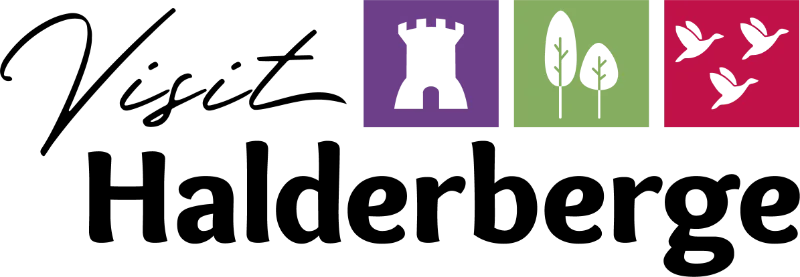From 'The Second World War' by Ben Suijkerbuijk
Ben Suijkerbuijk has chronicled some stories of Oudenbosch residents. One of the narratives recorded is by Jan Karremans. Excerpts from it follow below:
Playing soldiers
In the year 1939, general mobilisation was declared and even though I was a teacher, I too had to 'join the army', as it was called. However, we didn't see it as so tough. After all, the Netherlands had always been neutral! What could happen to us now? No, we really weren't worried.
As a non-commissioned officer of supply, I had a neat uniform. As such, I felt a bit proud. Of course, I showed myself to my students at the school where I was teaching. My students loved seeing their master back in that beautiful uniform and they were almost as proud as I was.
I spoke of 'playing soldier' because we really didn't take it that seriously and despite my nice uniform, I was never really a soldier, nor a hero. When I returned home after the capitulation, I was asked, "And Jan, did you shoot too?" My answer was, "I got fifty cartridges at the start of the war and now I have fifty-one, because I found another one." No, I didn't really fight, but we noticed in 1940 that being a soldier was no game. No, being a soldier and war are not games.
It became 10 May 1940
In early May 1940, tension rose. The horses had to remain harnessed. We were in position on the Zuid-Willemsvaart and waited anxiously for the enemy to come from the other side. We felt that something would happen soon, yet it still happened unexpectedly.
On the morning of the 10e May, a large number of planes flew over. Full of admiration, we watched that display of power in the sky. If they wanted harm, very little would stand up to it. We felt somewhat reassured again and backed up by the air force, until someone shouted, "Those are not ours, those are Germans!"
We, in our gullibility and incompetence, had thought they were Dutch planes. Then we knew it had really started. The planes did not harm us. They were going to bomb Rotterdam. We received artillery shelling from across the Zuid-Willemsvaart.
Gone was the safe feeling we had when watching, what we thought, was our air force. Of course the fire was answered by our troops, even though there was much panic and all sorts of things went wrong.
The war had begun. Playing soldier was over. Now it was bitter seriousness.
Billeting
The first years of the war were actually quite peaceful. School went on as usual and somehow we were not short of school necessities like ink, paper, pencils and the like. At the end, things became a bit more difficult. The occupiers became stricter and I too did not escape the increased tension.
At one point, my wife and I were ordered to quarter a German soldier. We were lucky. He was a good, already elderly and quiet man, who longed very much for his family. His dearest wish did give us some anxiety in the beginning. He always wanted to listen to Radio Oranje. We wanted that too and we did before he came to our house. As we did not know at first whether he could be trusted, we did not dare to put the radio on this strictly forbidden station in his presence. Later, when we got to know each other better, we sat together and listened to the voice from faraway England bringing the news, sometimes very indistinctly through the jammer. That news was quite different from the official news broadcast by Hilversum.
Mad Tuesday
It is Tuesday 5 September 1944. A day that will go down in history as Mad Tuesday. The Germans retreated in disarray and everyone thought the Netherlands would be liberated in no time. In Oudenbosch, too, people were so optimistic that the brass band was practising again after years.
German soldiers passed through Oudenbosch all by themselves, or in small groups. They looked slightly different from what they looked like in 1940 at their glorious entry. Despair and fatigue could be read on their faces. Unguided and demoralised, they retreated. They used all kinds of vehicles: women's bicycles, bicycles without tyres, or bicycles with so-called full tyres. These were rubbers cut from old car tyres and stretched on bicycle wheels. Most, however, were on foot. The invincible German army was clearly at an end. Their uniforms, so beautiful in 1940, were dirty and worn, like the men themselves, like the entire German army.
An elated mood prevailed in Oudenbosch, although people were wise enough not to put out the flags yet. One girl, however, was bold enough to dress in the colours of the Dutch flag: red, white and blue. By noon, the German trucks began to move. Remarkably, they fled in all directions. Our occupiers were clearly confused.
A group of Oudenboschers visited the part of the brother convent St. Louis, the so-called externat, where the Germans were stationed, and took whatever was of their liking. Radios tools, potatoes, and so on. The picture of Hitler was torn from the wall, smashed and burned. The swastika flag was confiscated by the brothers.
Shots fell on the Standdaarbuitensedijk. A group of Germans saw some looters and started firing. The Germans took what was of their liking and left the rest. They also let the looters go.
During the afternoon it became increasingly crowded. A long column of farm wagons came from Zegge towards Oudenbosch. They were farmers whose horses and wagons had been requisitioned by the Germans. Understandably, those farmers did not look cheerful. It was very lucky that there were no Allied planes in sight, otherwise the misery would have been incalculable.

